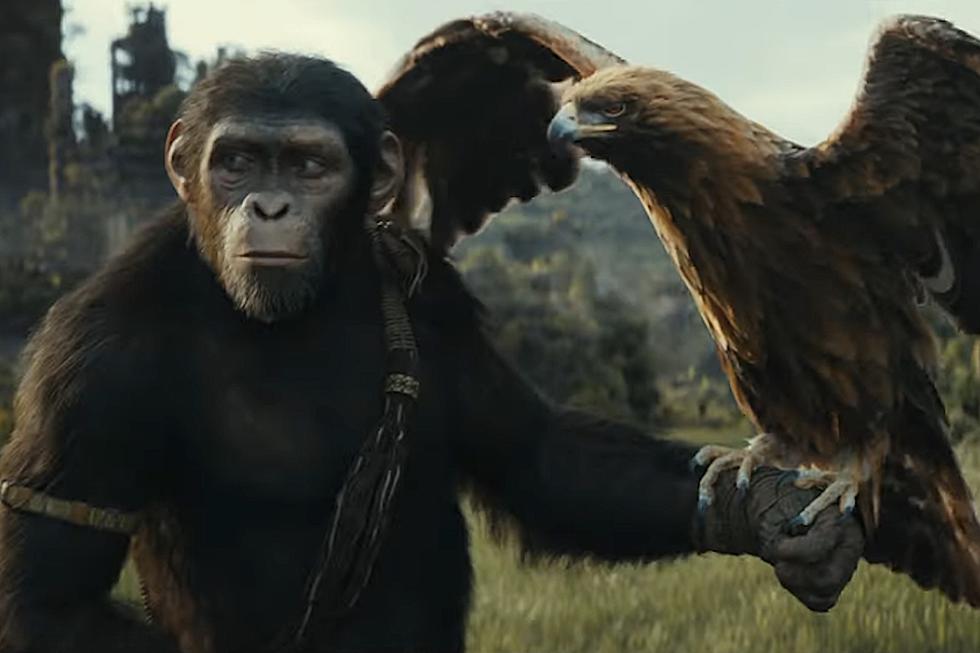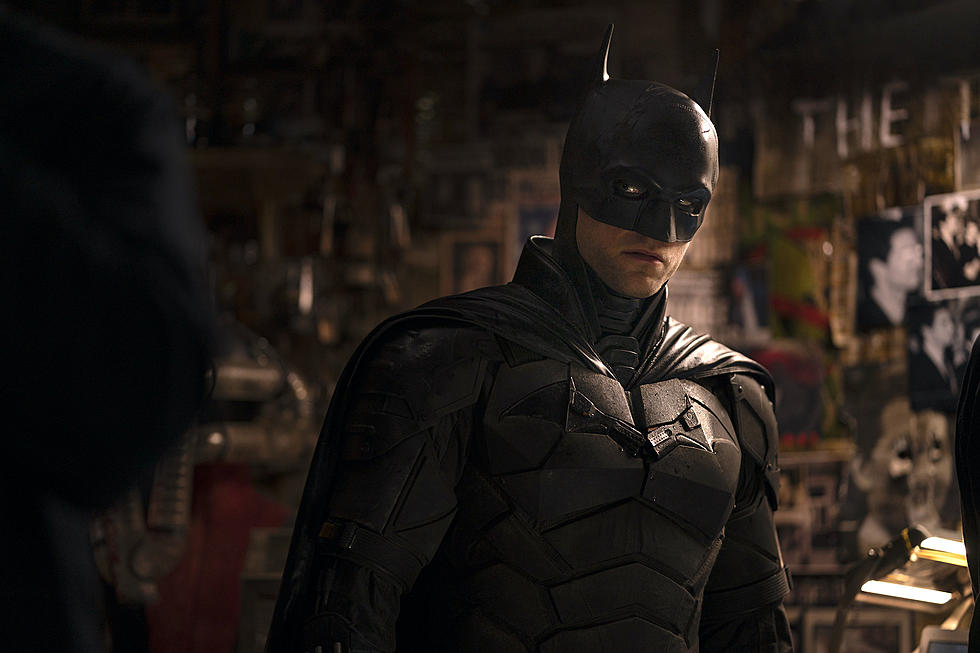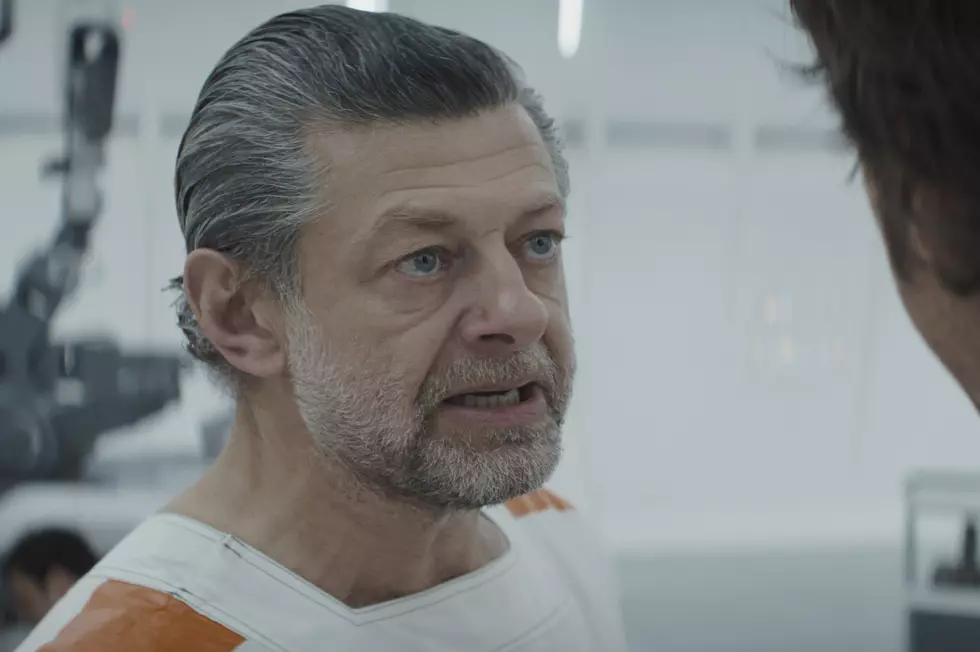
Every ‘Planet of the Apes’ Ending Ranked According to Its Soul-Crushing Bleakness
You might be shocked to hear this, but this list about the endings of Planet of the Apes movies contains SPOILERS for the Planet of the Apes movies.
We are told that War for the Planet of the Apes will conclude the trilogy of films started with Rise of the Planet of the Apes, and continued in Dawn of the Planet of the Apes, that tells the story of Caesar, the child of a lab animal who grows up to become the talking leader of a race of super-apes. We’ll see; the Planet of the Apes franchise has a habit of looking like it’s over only to come back with a vengeance. No Hollywood series has trafficked in more downer endings than the Apes. And downer is putting it mildly; the conclusions of some of the PotA films are so depressing they make Grave of the Fireflies look like a raucous coming-of-age comedy. But which is the most truly disturbing?
In celebration of War (and with the understanding that we’ll update this list with that movie’s ending after it’s playing in theaters) let’s rank every Planet of the Apes finale according to its f—ed-up ness.
8. A World at Peace?
From Battle for the Planet of the Apes (1973)
The original Planet of the Apes series concluded on a strange note for the franchise: A glimmer of hope. After yet another Battle between man and ape civilizations, the two societies reach a kind of equilibrium, however tenuous. After the main narrative wraps up, a frame story featuring the fabled “Lawgiver” ape (John Huston) speaks to an audience of both human and ape children, offering the possibility of peace. However, because no Apes movie can finish without at least a little bit of WTF, the camera tracks and zooms in on a statue of the great ape leader Caesar in the background, which then sheds a single tear. Don’t ask me how a statue can cry (maybe all that damn dirty radiation after the nuclear war?), but that image tempers the fleeting optimism with a note of melancholy. The Lawgiver’s sermon takes place centuries before Charlton Heston’s Taylor crashes on the PotA, at a time when things are a lot less harmonious. Though Caesar’s actions might have altered the timeline, it’s also possible this tranquility may not last.
7. We Are Very Good Friends. Good Buddies Sharing a Special Moment.
From Dawn of the Planet of the Apes (2014)
The second part of the current Apes trilogy ends with a not-entirely horrifying conclusion which, in this franchise, is about as happy as things get. The escalating conflict between man and monkey is about to erupt into all-out war (see: the title of this week’s new sequel) but for this one brief moment, Caesar (Andy Serkis) and Malcolm (Jason Clarke) share their mutual feelings of admiration and friendship. There’s even an interspecies hug. Aww! Aaaaaaaaand then the war for the Planet of the Apes begins. Bummer.
6. Aperaham Lincoln
From Planet of the Apes (2001)
In the interregnum between the two primary Apes series, Tim Burton made this slightly baffling reboot, starring a young Mark Wahlberg as its next-gen Heston figure, an astronaut who crashes onto a new simian world. Attempting to recreate the shock of the original Planet of the Apes’ ending without actually rehashing the image of the Statue of Liberty, Burton’s film ends with Wahlberg’s character leaving the planet and returning home to Earth in the present, only to discover — Duh duh duhhhhhhh! — that the Lincoln Memorial is now somehow a statue of the evil ape leader General Thade (Tim Roth). Wow! What a twist! That makes ... absolutely no sense whatsoever! Burton later claimed “Aperaham Lincoln” was designed as a cliffhanger to stoke audience interest in a possible sequel. Not so much! “If I explain this ending, it kind of screws up other things,” he offered on his DVD commentary. So Burton chose not to explain it, which screwed up this specific thing instead.
5. Flight of the Simian Flu
From Rise of the Planet of the Apes (2011)
Caesar and his new tribe of intelligent apes manages to escape San Francisco and settle in the woods nearby. A certain kind of calm has been achieved until — Duh duh duhhhhhhh! — the neighbor of James Franco’s scientist character catches a bug caused by the same experimental virus that makes Caesar and his buddies smart and then — Duh duh duhhhhhhhhhhhh! — the neighbor turns out to be an airline pilot, and his travels quickly spread the “Simian Flu” around the globe. Thanks a lot, James Franco.
4. No Escape
From Escape From the Planet of the Apes (1971)
This ending doesn’t appear to be online, so you’ll have to take my word for it: This thing is a mega-bummer. (The film’s trailer is posted above.) Escape follows three apes that managed to escape the PotA and, through a fluke, wind up getting sent back through time to the year 1973. (The near-future when the movie was released in 1971.) Their ability to talk makes the apes celebrities, but the same culture that exalts them eventually destroys them. After deciding the chimps are a threat to the future of the world, the U.S. government hunts Cornelius (Roddy McDowall) and Zira (Kim Hunter) to an abandoned ship where they are both — Duh duh duhhhhhhh! — shot and killed. Their super-smart baby survives in the care of a friendly circus owner (Ricardo Montalban). Hooray! Oh, but then he grows up to lead apekind against people. Oops.
3. Where There Is Fire, There Is Smoke
From Conquest of the Planet of the Apes (1972)
Things got really disturbing with Conquest of the Planet of the Apes, the sequel where the franchise’s already thinly veiled racial metaphor shifted from subtext to full text. Some years after the events of Escape, domestic dogs and cats have died from a disease, leading people to take apes as pets and later as slaves. Those apes include Caesar (McDowell) the hyper-smart child of Zira and Cornelius, who eventually leads an uprising at the ape training facility. Caesar’s anger is justified, but the film’s original ending (seen above), where he essentially declares war on humanity and then watches silently as his followers murder their former overlord in cold blood, was so grim, even by the standards of the mega-grim Planet of the Apes, that it was changed in post-production so that the overlord was spared and Caesar offered a marginally-less-terrifying final speech about the birth of the Planet of the Apes. But even the compromised version is very intense.
2. Oh My Gosh, I Was Wrong! It Was Earth All Along!
From Planet of the Apes (1968)
It’s an ending even more famous than the film it’s in: Charlton Heston’s time-lost space traveler Taylor ends his struggles with the authorities of a mysterious ape civilization and then charts a course for their “Forbidden Zone,” where he discovers incontrovertible proof that this planet is his own: the twisted ruins of — Duh duh duhhhhhhh! — the Statue of Liberty, destroyed by a horrific war at some point in the distant past. Taylor’s anguished cries (“You maniacs! You blew it up! Damn you!”) are only part of the gloominess; at the same time, ape leader Dr. Zaius (Maurice Evans) destroys the rest of the evidence that proves humans ruled the world before apes and charges Taylor’s ape allies with heresy. So everyone is miserable now! But things would get even worse just one movie later.
1. Doomsday
From Beneath the Planet of the Apes (1970)
How do you top one of the darkest endings in movie history? That’s easy! You blow up the entire freaking world. In this first Apes sequel, another expedition (led by Heston lookalike James Franciscus) journeys to the Planet of the Apes to try to find out what happened to Taylor and his crew. Heston only agreed to appear on the condition that Taylor got killed so he would never have to go back to the Forbidden Zone ever again, and then suggested an ending even more conclusive: Eradicating the entire world in a nuclear blast. Astonishingly, the producers went for his idea; just about every major character gets brutally gunned down, and then — Duh duh duhhhhhhh! — a fatally wounded Taylor activates the doomsday bomb, destroying the PotA and everyone on it. Apes producers eventually engineered a sneaky workaround by setting the next film in the past, but that doesn’t change the fact that Beneath the Planet of the Apes ends on one of the bleakest notes in Hollywood history. It’s the ultimate cinematic mic drop.
More From ScreenCrush









